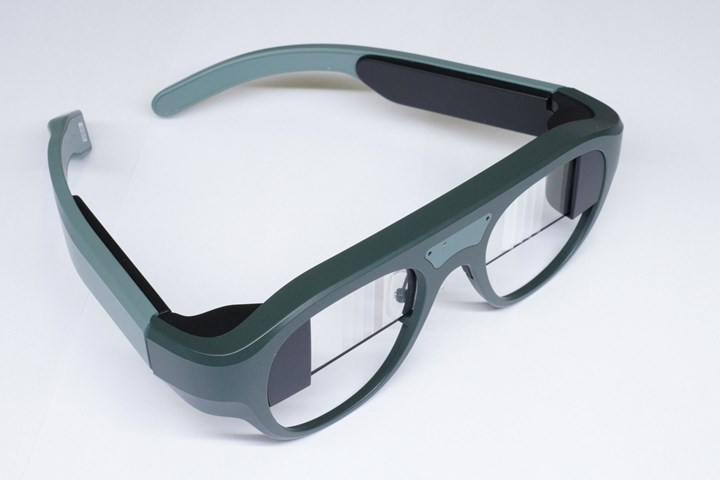PEI Used in Lightweight Augmented Reality Eyeglasses
SABIC’s Ultem 1000 molded by Beijing LLVision Technology for the temples of their AR eyeglasses which display voice translations in text on the lenses in real time.

Augmented reality (AR) eyeglasses for hearing loss compensation and spoken language translation from Beijing LLVision Technology Co., Ltd., branded Leion Hey, feature legs (or temples) molded from SABIC’s tough, lightweight, and inherently halogen-free flame retardant Ultem 1000 PEI.
The Ultem PEI enables thin-wall molding of the hollow legs, which contain both a lithium-ion battery and a computer chip to enable rapid, multi-language translations. The material helped LLVision minimize the weight of the legs to give users all-day comfort, while providing high strength that enables key components to be integrated into the legs with maximum functionality.
Said LLVision’s CEO Wu Fei, “At the beginning of the design phase, we set a goal to make the lightest AR glasses on the market. Every gram mattered to the comfort of our customers. However, with all the components required for AR glasses, including the optical module, microphone and computer chip, it was a difficult challenge. After comparing and testing materials from more than 20 suppliers globally, we found SABIC’s Ultem resin to be the lightest, with additional advantages of strength, resilience and inherent, non-halogenated flame retardance. With the help of Ultem, we lowered the overall weight of our Leion Hey glasses to just 79 grams, or 2.8 ounces.”
Related Content
-
General Polymers Thermoplastics to Further Expand Distribution Business
NPE2024: Following the company’s recent partnership buyout, new North American geographic territories are in its sight.
-
Prices Up for All Volume Resins
First quarter was ending up with upward pricing, primarily due to higher feedstock costs and not supply/demand fundamentals.
-
Scaling Up Sustainable Solutions for Fiber Reinforced Composite Materials
Oak Ridge National Laboratory's Sustainable Manufacturing Technologies Group helps industrial partners tackle the sustainability challenges presented by fiber-reinforced composite materials.




